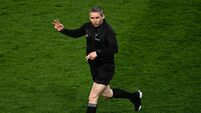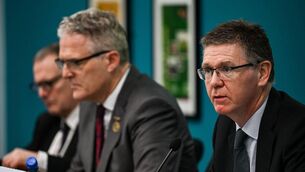O’Neill not opposed to refs acting on replays
The Uachtarán was speaking in Mayo yesterday, just two days after referee Marty Duffy overturned his decision to declare an Eoghan O’Gara point attempt wide during Dublin’s Leinster football final against Meath on the advice of linesman Maurice Deegan.
“Doing the right thing would never make me feel uncomfortable,” he stated when asked about officials and TV replays.













